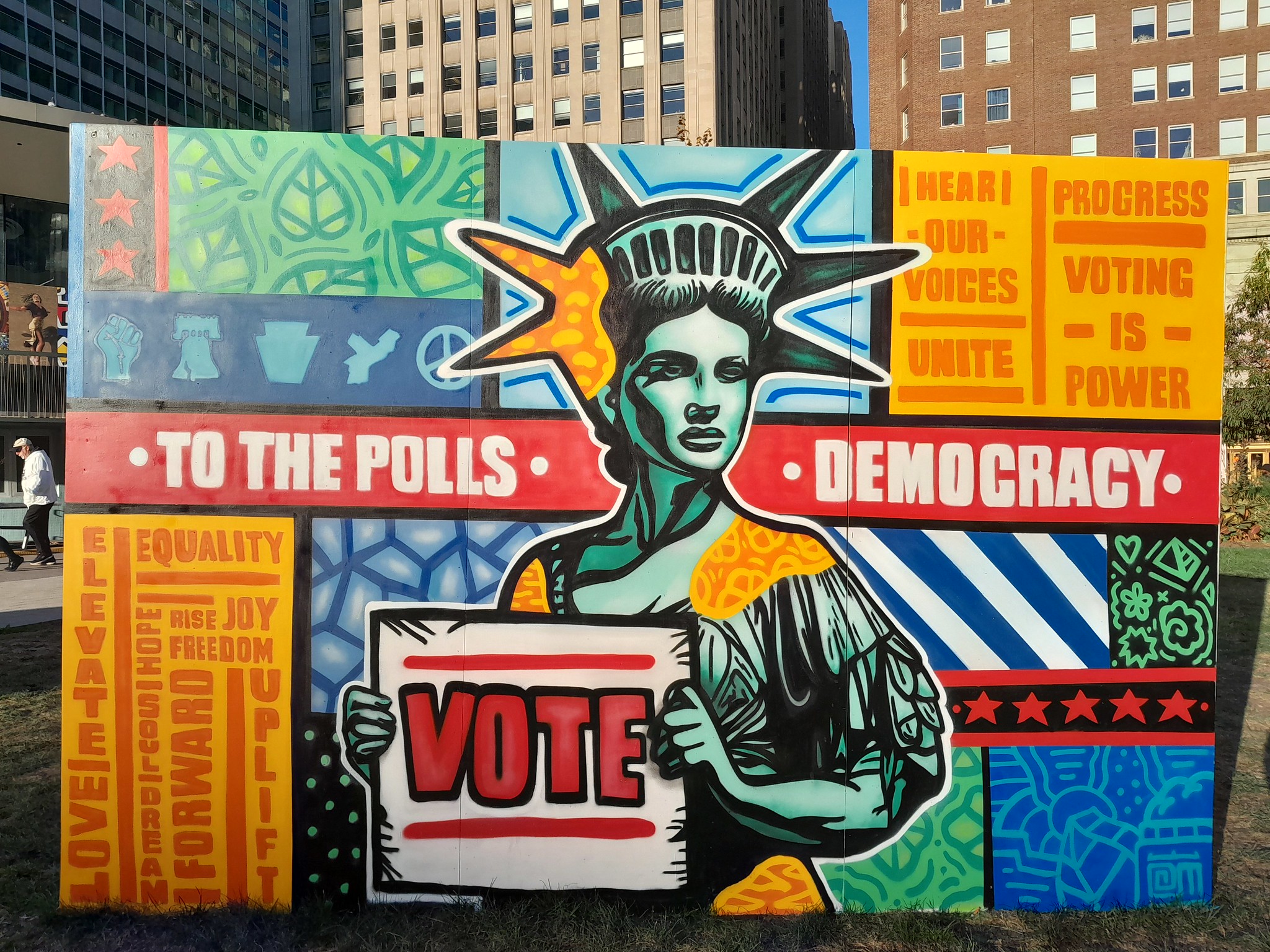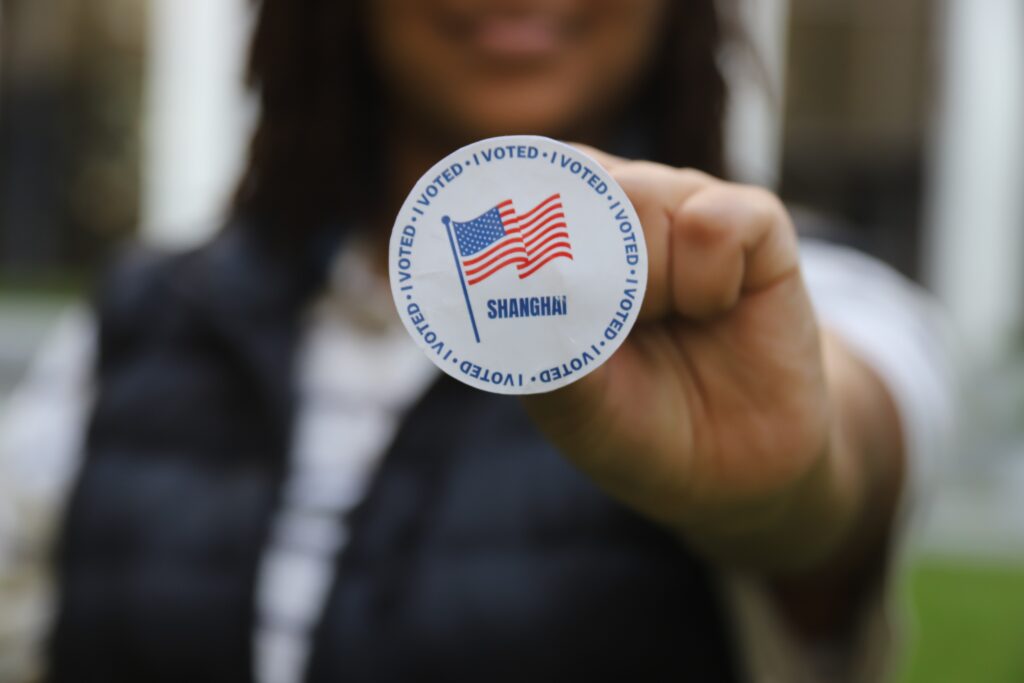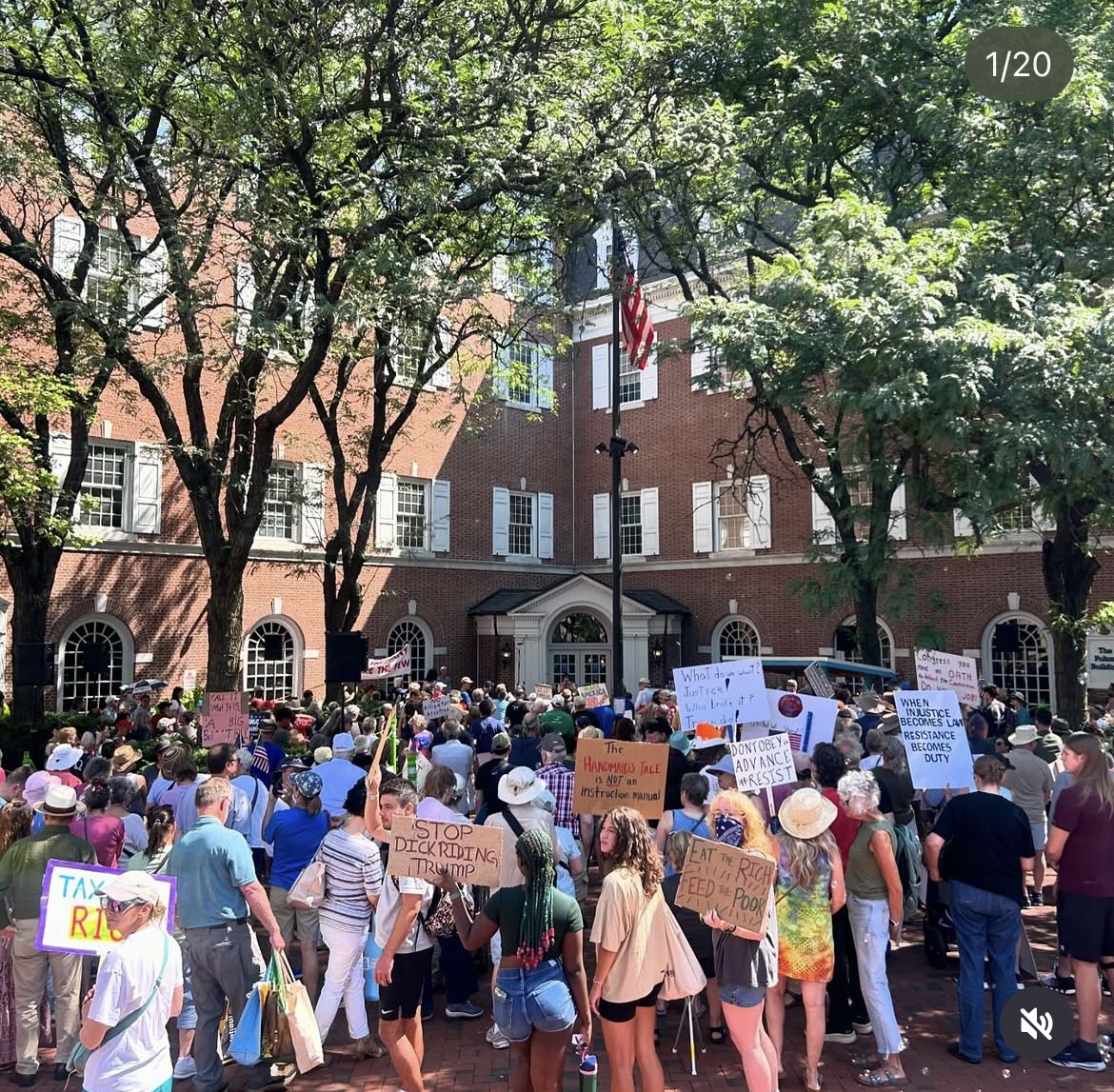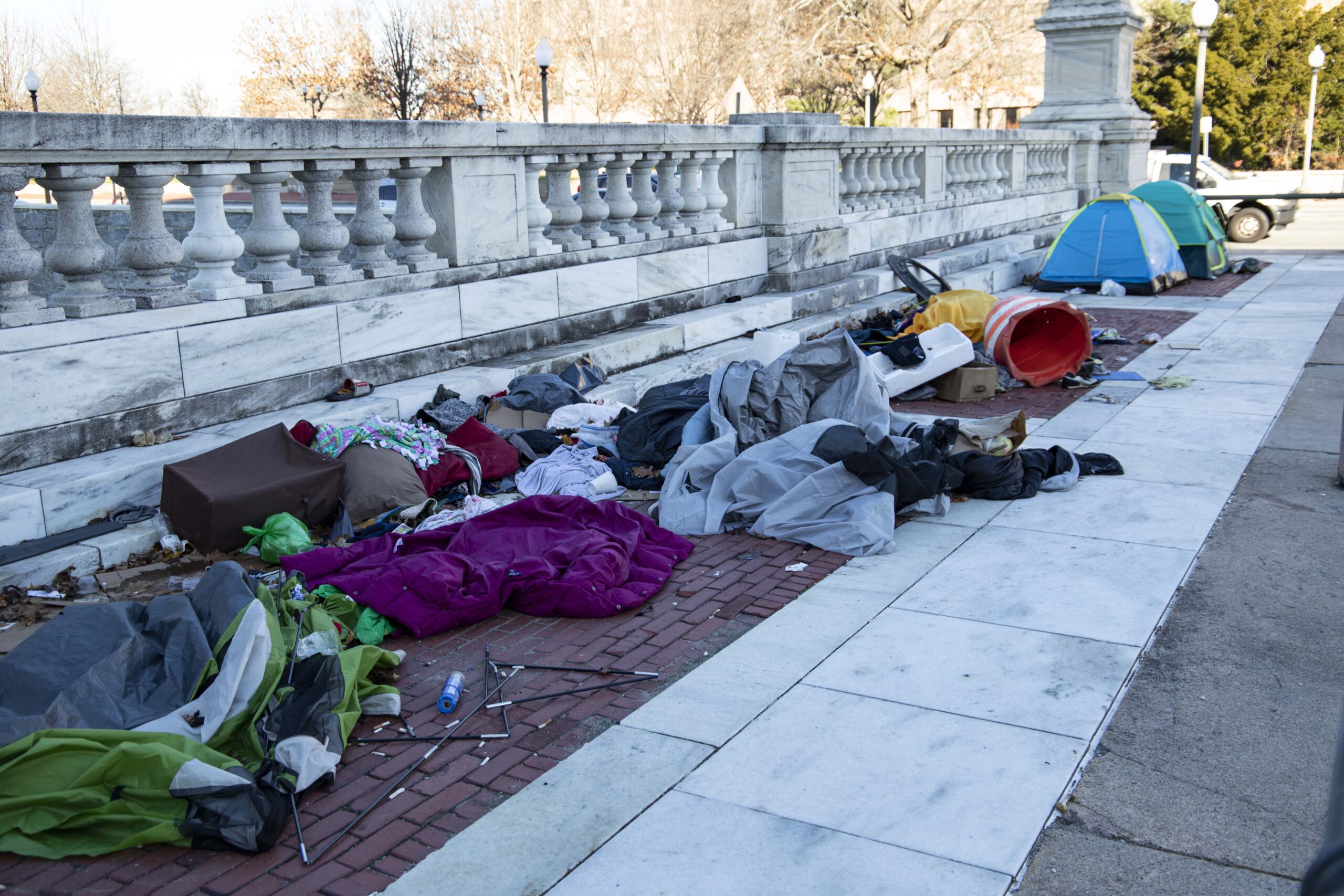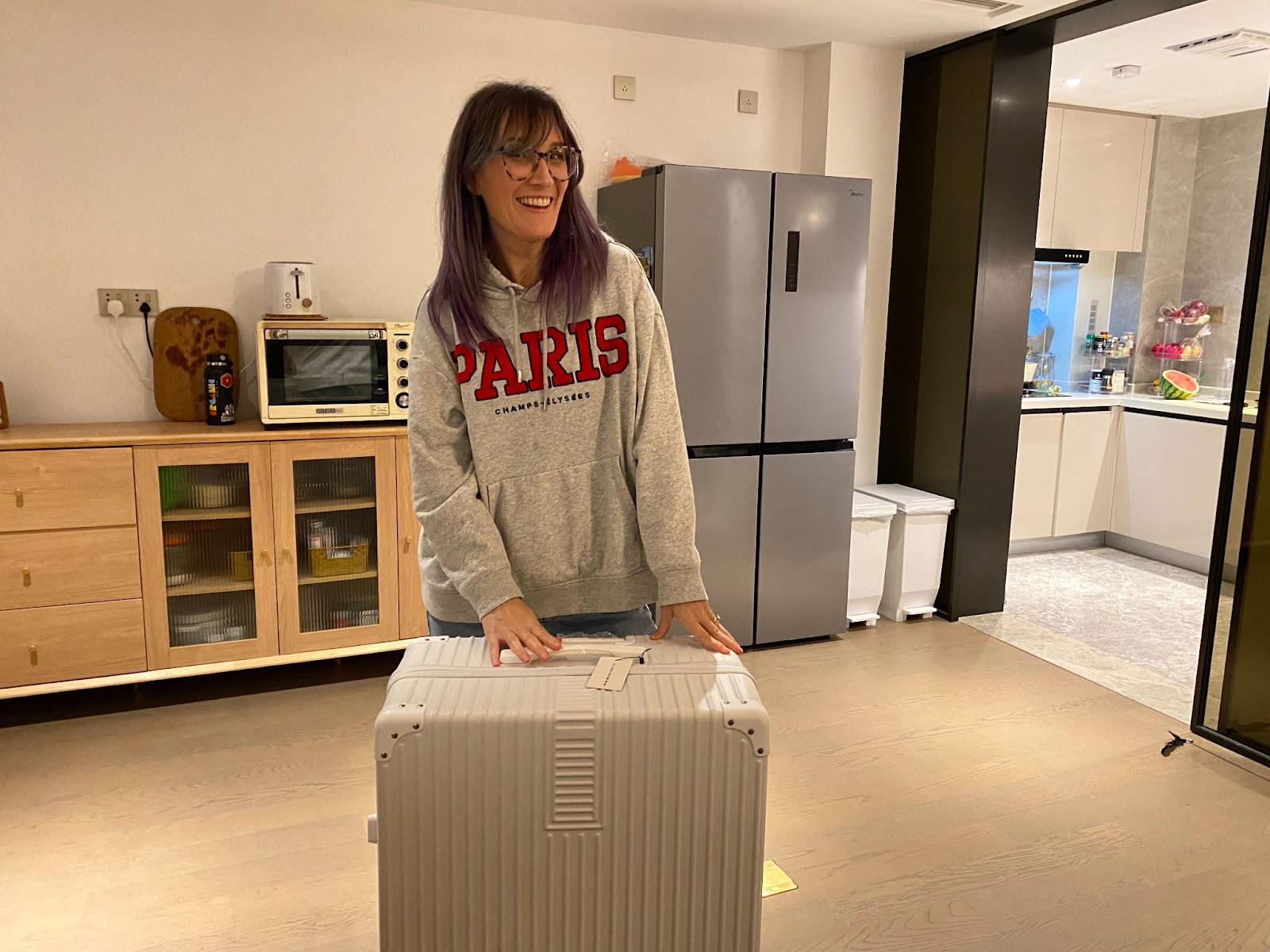(SHANGHAI) – As darkness closed in on Election Day in the U.S., the day was just beginning half a world away in Shanghai. Pedestrians competed for right of way with electric scooters and cars on a small downtown street, but inside Parlay, an American-style sports bar, the mood was tense as a small group of Americans living in China gathered to watch the election results.
About 100 Americans watched the election results trickle in on ten large screen TVs broadcasting CNN, Al Jazeera, and MSNBC while noshing on an American breakfast of pancakes, eggs, and sausages.

Americans at an election watch party in Shanghai [Credit: Renee Lym]
‘Trump wins, I don’t know if we will’
The mood shifted in the room as states were called for either Trump or Harris. Robert Paschen, a 48-year-old Ohio voter who’s been living in China for 11 years, watched the results nervously. “Here we are at the precipice of the end of the world,” he joked. “I do feel this is a seminal moment. It’s a historic moment, and I have my fingers crossed.”
The results could have a real impact on Paschen’s family in Shanghai. “We’re thinking strongly about going back to the US,” he said. “Trump wins, I don’t know if we will.”
Washington state voter Lawrence K, who declined to give his full name for privacy reasons, came to the watch party to be with friends, one of whom sported a bright red MAGA hat. Lawrence said he decided not to vote for either Harris or Trump this election because he disagreed with both candidates. He said he wasn’t excited about a Trump win, though, because Trump’s proposed tariffs on Chinese-made goods could impact his work in the tech industry.
Many Americans living in China followed the election results on their phones throughout their workday. The American Chamber of Commerce in Shanghai held a nonpartisan election watch party at their downtown headquarters.
The power of overseas voters
Overseas voters aren’t just following election results; increasingly, they are also deciding close elections. “We know enough overseas ballots were returned in Georgia to force that runoff in the senatorial elections in January 2021,” said Amanda Klekowski von Koppenfels, a University of Kent researcher on migration and Americans abroad. She also described herself as one of an “unofficial kitchen cabinet” of advisors to President Biden on overseas American concerns. “There are enough overseas Americans scattered across various states to actually make a difference in these really tight elections.”
This election saw both parties’ candidates make a direct appeal to voters living abroad in the final weeks. Kamala Harris sent a letter promising to take their concerns about banking, taxation, voting, and citizenship into consideration and encouraging them to vote in the election.
On his social media platform Truth Social, former president Donald Trump promised to lower taxes for Americans living abroad.
The US government estimates 2.8 million eligible overseas voters, including service members, business people, students, retirees, people holding dual nationality, and digital nomads. The majority of them live in Canada, U.K., and France, with only 55,000 of them living in China, according to China’s National Bureau of Statistics.
A much smaller percentage of those overseas Americans actually vote. However, that number has been increasing, with 73.5% more votes from abroad counted in 2020 than in 2016, according to the Electoral Assistance Commission.
The difficulties of voting from abroad
The difficulties of absentee voting may contribute to the lower rates of voting by overseas Americans, said von Koppenfels. While some states allow voting by email, absentee voters from many states have to register to vote and send their ballot through the mail, often weeks ahead of Election Day. And small logistical problems, like the size of the envelope or variations in a voter’s signature, can lead to their vote not being counted.
An unofficial poll of 50 Americans living in China found that most voted in the election, but 20% said they didn’t vote because they encountered difficulties, including missing a deadline or being unsure of how to vote from abroad.
Illinois voter Clem Courtney has worked as a teacher in China for the past 20 years. Courtney, who is Black, said he votes in every election he can because he wants to exercise the right that was denied his enslaved ancestors. But his vote hasn’t always been counted, he said, even when he has tried to track his ballot. In the 2020 presidential election, “I sent messages for a good two weeks asking if they’d received the ballot, and they told me two days before Election Day, ‘Oh, we didn’t get your ballot,’” he said. “I’m like, what am I supposed to do about that now?”
Back at the sports bar, as lunch hour approached with no clear sign of a winner, the crowd began to thin out, but Campbell, the young teacher, lingered on. “I don’t know. I hope Harris wins, but if I’m being truthful with myself, I kind of think he [Trump] will, ’cause he’s leading really good right now,” she said.
